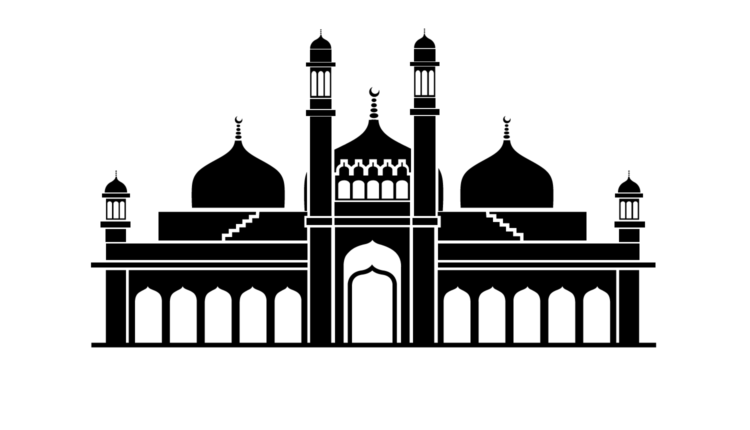- Advertisement -
Gyanvapi History: Whose Land Is It? Temples Or Mosques In The Gyanvapi Complex
- Advertisement -
The Gyanvapi Mosque, which is located in Varanasi, has a long history filled with disputes and problems. Gyanvapi history is complicated. This place, located near the banks of the Ganges River, remains a subject of dispute between Hindus and Muslims. The Gyanvapi history has its own versions that need more research and attention.
Gyanvapi’s History as well as its Ancient Beginnings
The Mughal Emperor Aurangzeb constructed the Gyanvapi Mosque, also known as Alamgir Mosque, in the late 17th century. But if you think it is that simple, then no, this is not that simple. An impressive structure with a story linked to the Kashi Vishwanath Temple stands behind this.
This temple was a Lord Shiva temple before, which is close to people who are devoted to Lord Shiva. Pandits and believers assert Lord Shiva personally built the temple, solidifying its status as a revered Hindu shrine. which makes it one of Hinduism’s most revered shrines and also proves how much this temple is important to Hindus. Gyanvapi’s History always makes it difficult to find out the truth and justice for both religions.
Transformation and Controversy About It
When We talk about the Kashi Vishwanath Temple and the Gyanvapi Mosque, that remains a big topic of debate and dispute in Indian history. According to Gyanvapi history, the construction of the Mosque involved tearing down a part of the temple and utilizing its stones and pillars for the mosque’s construction. It implies that they dismantled the temple and used its materials to build the new Mosque.
Which in the end resulted in a mix of architectural features in the area that included both Hindu and Muslim.
- Advertisement -
Read Also : Bali Indonesia Tour Guide : The Ultimate Travel Guide, Flights, Hotels, Resorts And Activities
Legal Battles and the Dispute
As it is clear that this Mosque is filled with disputes, it is inevitable that it will have to face different legal battles as well as conflicts. Over time, both Hindu and Muslim groups have filed many petitions and pleas about who should own and control the complex. All these disputes are all about land ownership, who will get access and keeping the religious importance of the site intact. All the legal battles and fights for this land have made its history even more complicated than before.
Hindu Perspective for Gyanvapi History
- Advertisement -
Alright, now it’s time for us to understand Gyanvapi history from a Hindu viewpoint, which is definitely that the Gyanvapi complex symbolizes disrespect towards one of their holiest temples. Many Followers believe that converting the Kashi Vishwanath Temple into a mosque went against their religious rights and insulted their cultural heritage, which is somewhat true.
Many people are thinking that regaining the temple’s original location is not just a legal dispute but a deeply spiritual matter or a matter of true justice. For the people who worshiped Lord Shiva, it was a big act of justice and related to their emotional depth, as their love for Lord Shiva matters to them.
Muslim Perspective for Gyanvapi History
According to the Muslim population of India, this Mosque is a very religious and historical place for them. They also assert that the construction of this Mosque adhered to the norms and policies of that era, considering it an Islamic heritage worthy of protection. For the Muslim community, this place holds a connection to the story of Muslim rule in India, underscoring the importance of not overlooking it under any circumstances.
Even if we do not talk about or discuss its legal and religious disputes, we also know that the Gyanvapi complex has deep cultural and historical meaning and always uncovers India’s past. It definitely shows all of us how India has a mix of different beliefs and cultures that have existed for so many years and still blend well. When We see the design of Gyanvapi, we notice a great example of this blend. This kind of history, which existed in India for hundreds of years, also tells the story of people who survived here and didn’t give up even after so many invasions.
Read Also : Vande Bharat Train In India : Timings, Route, and Prices
The Only Way Forward
The ownership and control of the Gyanvapi complex are still not settled. Both parties are fighting hard to prove their point and their legal battles have now become a matter of religious beliefs. Gyanvapi history has a lot to tell and a lot to explore but it should be suggested to come to an agreement that won’t affect the harmony of the country. But the point is to come to an agreement that both the communities have to calm down. And it’s not easy to do so as both the communities are very emotional about the land and its value for them is absolutely non-negotiable.
We can always come to a solution if we want to and we can make Gyanvapi history a history of unity by respecting each other’s emotions. It’s where the past and present peacefully exist together. Right now the case is in court and The Supreme Court of India declared on Friday that they refuse to stop the Archaeological Survey of India (ASI) from surveying the Gyanvapi mosque. The Supreme Court assured Muslim communities that ASI will complete its survey without excavation and that they do not need to worry about any harm to the Mosque. But the community still seems anxious and worried.
The Gyanvapi history is a complicated one for both communities as it involves religious importance.
- Advertisement -

